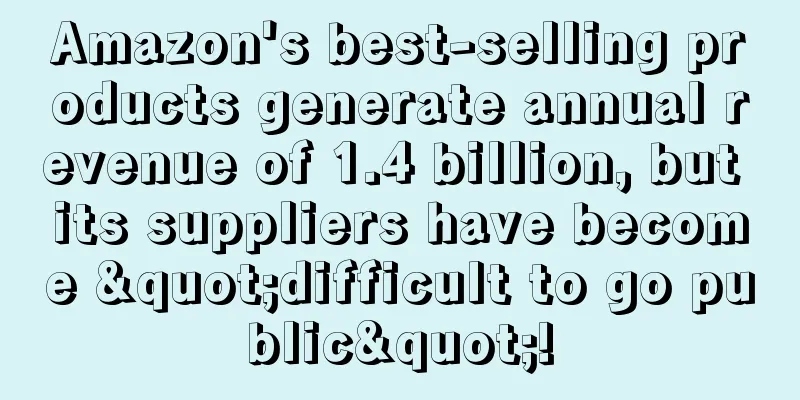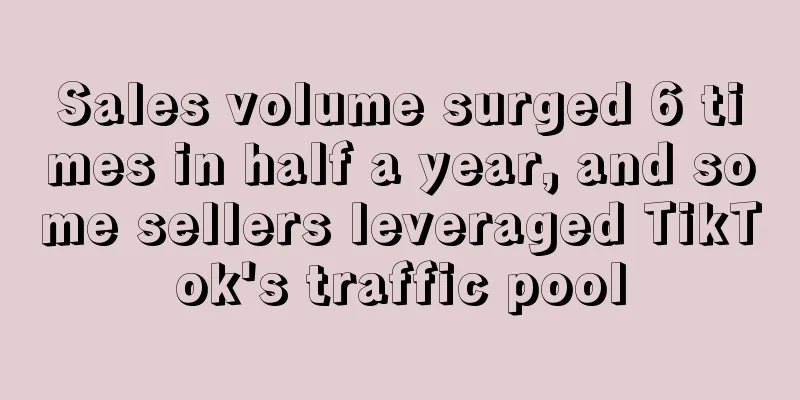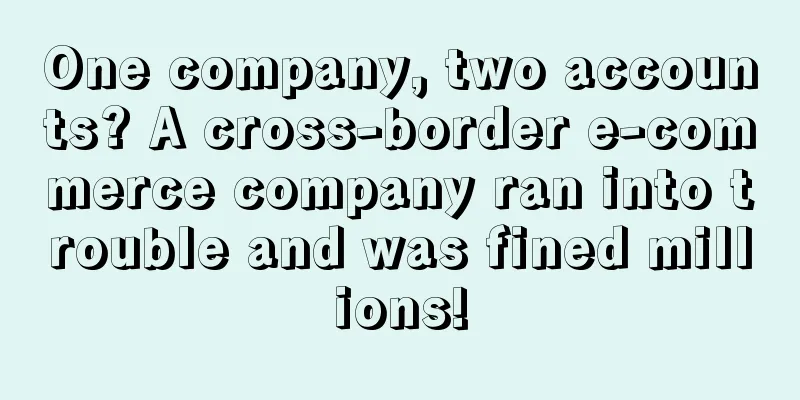Big sellers flock to go public, nearly 10 companies enter IPO coaching period

|
Last year, Anker Innovations' successful independent listing greatly stimulated the capitalization enthusiasm of the cross-border e-commerce industry. The industry's big sellers are faced with a single choice: focus on making money or sacrifice profits for capitalization? For boutique and mass-market companies, the capitalization difficulties they face are at two levels.
Qian'an Technology CEO He Ding revealed that there are nearly 10 companies in the industry that have entered the IPO guidance period, and Qian'an Technology is one of them. If it goes public successfully, Qian'an will focus on product research and development, but there is one thing that is more dangerous and Qian'an will not do it.
Nearly 10 big sellers entered the IPO coaching period
On August 24 last year , the first batch of 18 companies under the GEM registration system were collectively listed, and industry heavyweights Anker Innovations and Gemtech were among them. By the close of the day, Anker's market value was close to 60 billion, making it the company with the highest market value among the first batch of GEM listed companies, firmly sitting on the throne of "the No. 1 cross-border e-commerce company."
Soon, cross-border e-commerce companies went public independently. Qianan Technology CEO He Ding said that nearly 10 companies in the industry have entered the listing guidance stage , and Qianan is one of them.
An important indicator for going public is financial status.
In 2020, Qian'an's sales increased by about 70% year-on-year . Its core brands include Ohuhu (mainly art supplies), Sportneer (sports and outdoor) and Tribit (audio product) is a typical boutique model.
He Ding said : "Because of the epidemic, everyone's growth is high. The industry average is about 50%. The epidemic has pushed up the growth rate of all sellers by 30% . "
In contrast, Amazon sellers will face considerable pressure this year. It will be difficult to maintain the same growth rate as last year, let alone continue to grow. There are two reasons: 1. Last year's revenue base was large; 2. Life in Europe and the United States is gradually returning to normal, and the online sales market has become smaller.
After last year's rapid sales growth, many sellers worked hard to prepare stocks. However, as the epidemic in Europe and the United States eased, people's lives gradually returned to normal, and the time spent at home became shorter. The once popular home sports category began to cool down, and the sales of outdoor products rebounded. Offline supermarkets also tended to open normally, returning to the pre-epidemic state. Therefore, this year the proportion of online sales will return slightly, the online market will become smaller, and sellers with too much stock will be under great pressure.
Qianan's use of raised funds: two things to do and one thing not to do
The most obvious benefit of a company going public is that it can raise a large amount of funds. If the listing is successful, how will Qian'an plan the use of the raised funds? He Ding said that the funds will be mainly used in two aspects:
“First, establish a product R&D team, supporting R&D equipment, and build up R&D capabilities
Many of our cross-border sellers who sell high-quality products started out by selling goods, and then gradually focused on products. This naturally does not have a foundation for product research and development. Even leading companies like Anker slowly built up their products through research and development in the later stages. So our first point is to use part of our funds to build product research and development capabilities.
2. For brand building
The ultimate hope of sellers is that the brands that currently rely on Amazon will gradually grow into real brands. When you incubate a brand on Amazon, it does not mean that you will rely on Amazon for your whole life. Even if you leave Amazon, you still want to be a brand, so you must slowly build up the brand's popularity and reputation, so these aspects require investment. "
However, Qianan is very cautious about spending money to prepare large quantities of inventory. Referring to the recent financial report explosion of a certain industry, it is not difficult to see that its inventory preparation is out of control. Once the seller has too much inventory and fails to sell it in time, it is very likely to become dead inventory and eventually be scrapped and discarded , which is likely to affect capital turnover and is very unfavorable .
Multiple choice question: Focus on making money or sacrifice profit capitalization?
Compared with most sellers, Qianan is one step ahead in capitalization. However, He Ding believes that capitalization is not the only goal of all sellers. If they want to capitalize, sellers will inevitably face sacrificing part of their profits.
Taking the path of capitalization means that sellers must be very standardized in all links. Domestic A-shares have very high requirements for standardization. In the pursuit of standardization, sellers must give up the immediate benefits of non-compliance. The three words "standardization" contain a lot of things. If you really want to be capitalized, you must start preparing as soon as possible.
"Cross-border e-commerce has gone from the wild growth stage of making money 5-10 years ago to the stage where it can now be exposed to the sun for everyone to examine," said He Ding.
In addition to going public or acquiring, sellers have another capitalization option.
In the past two years, some capital has entered the industry and tried to buy out the seller's high-quality stores with a sum of money (such as 30 times the monthly gross profit). For sellers, this is an opportunity to get rich overnight, but whether to choose it depends on their own situation and the prospects of the store.
The capitalization difference between boutique and mass-market companies
In the cross-border e-commerce industry, boutique sellers are a minority, while general sellers account for the majority. There are obvious differences between the two in terms of capitalization difficulty and subsequent development.
In terms of independent listing, boutique companies have a better chance of success. After completing capitalization, the development of boutique and mass-market companies is also different.
As of now, the performance betting period of Youkeshu, Tongtuo, Jiazhilian and Zebao has expired, and the results have been released .
Zebao : Exceeding performance bet Youkeshu : The cumulative net profit from 2018 to 2020 is about 974 million, and the net profit of 1 billion has not been completed, with a completion rate of 97.37% Tongtuo: The cumulative net profit from 2017 to 2019 was 710 million yuan, and the net profit of 872 million yuan was not completed, with a completion rate of 81.42% Price Chain : The cumulative net profit from 2017 to 2019 was -41.1243 million, which failed to meet the agreed net profit of 510 million, and a compensation of 1 billion was required
Only ZEBO completed the performance bet, and the completion rates of the companies that did not complete the bet also varied greatly. He Ding analyzed the reasons for the failure to complete the bet:
On the one hand, this is related to the accuracy of the company's future forecasts. Whether the forecasts are conservative or aggressive, the performance bet is not completed. The compensation mechanism is positively correlated with the degree of non-completion. If the performance bet is only slightly off, the actual compensation will not be much.
On the other hand, judging from the development trends in recent years, the performance of the boutique model is guaranteed to be better, the distribution model is highly competitive, and the company's profit margin may decline, which may cause the helmsman to have some deviations in his estimates for the future.
Conclusion
He Ding believes that capitalization should take its natural course and not be radical or capitalize for the sake of capitalization. It would be better to capitalize when the company has developed to a stage suitable for capitalization.
On May 25, the 5th China Cross-border E-commerce Network Marketing Conference will be held in Guangzhou. At that time, Qianan Technology CEO He Ding will give an in-depth explanation on "Attack and Defense of Amazon Seller Capitalization in 2021". Click "Read Original Text" to register for the conference. Selling well, listed |
<<: While India’s neighbors are expressing emergency, Europe is beginning to lift the ban!
Recommend
What is MCI? MCI Review, Features
MCI (Multiple Country Inventory) refers to multi-...
What is Synagie? Synagie Review, Features
Synagie is an e-commerce solutions provider founde...
What is aftcra? aftcra Review, Features
Aftcra is an online marketplace where American han...
What is Ozon? Ozon Review, Features
Ozon is a Russian online retailer founded in 1998...
What is Apple Pay? Apple Pay Review, Features
Apple Pay is a digital wallet that allows custome...
On the same list with SHEIN, the top students in the sub-category are exposed!
Chinese brands are taking the lead in going overs...
Net sales of $874 million, record sales for Mattel in the U.S.
Relevant data shows that in the first quarter of ...
US retailers are spending a lot of money to recruit employees in preparation for the peak season. Sellers: Are prices going to increase?
Although the global epidemic is still spreading, ...
What is chineon? chineon Review, Features
Chineon is an offline management software designe...
What is zemalia? zemalia Review, Features
Zemalia is a manufacturer specializing in the rese...
Tencent, Hillhouse Capital and other giants have placed their bets, and this track has become popular!
With its high speed and labor-saving features, th...
What is PostEase International Express? PostEase International Express Review, Features
Postease International Express (Postease (Shenzhe...
Where are the overseas opportunities this year? AliExpress: Continue to invest in the European and American markets, and increase investment in new markets in Japan, South Korea and the Middle East
Where are the overseas opportunities for cross-bo...
What is Shenzhen Kailide International Logistics Co., Ltd.? Shenzhen Kailide International Logistics Co., Ltd. Review, Features
Shenzhen Kailide International Logistics Co., Ltd....
What is camilla? camilla Review, Features
Camilla is an Australian womenswear brand founded ...









